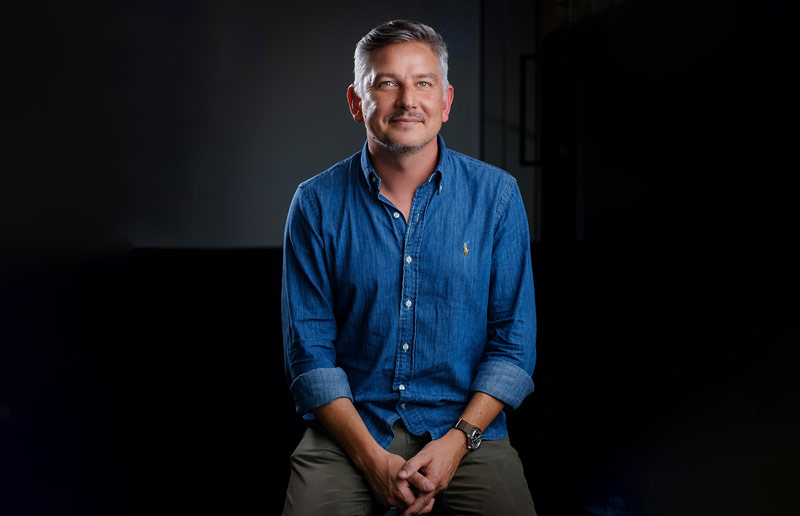By Dan Bye*
As business leaders and marketers, the more we understand about consumers and their behaviour, the better we will be placed for future success. This is especially true as we look to recover from the economic and societal impacts of Covid-19, which has resulted in fundamental changes in how we all interact with the world around us.
At dentsu, our latest research takes a deep dive in to the long-term consumer trends we see emerging over the next 10 years. The study shows how the pandemic has accelerated many of the long-term trends facing brands, drawing on in-depth interviews with world-renowned futurists, academics, authors and experts, together with proprietary consumer research commissioned to really get under the skin of the trends that are emerging today.
We’ve taken these insights and provided a roadmap to understand the consumer behaviour and brand engagement that will help shape the next decade. Identifying four key themes, each providing an opportunity to assess how well Kiwi businesses are positioned to face the next ten years and how as marketers we can create effective solutions that will enable us to respond to these trends.
Brain microchips?
Health and well-being are as important as ever and a key theme amongst consumers, with many sharing a desire to further utilise technology to stay healthy in the future. One-third of respondents would consider having a microchip put into their brain to improve physical senses, improve life expectancy and learn new skills, which may seem extreme but shows us how much value consumers are increasingly placing on their wellbeing. In future, these procedures will not feel as alien as they do today and will become increasingly common.
Mental health is topically relevant as policymakers assess the psychological fallout from the global pandemic. One third of consumers say that by 2030 they would undergo non-essential surgery to improve their mental health. Brands will need to ensure their marketing strategies are both human-centric and empathetic, taking into account the mental health and wellbeing of consumers.
“Seven in 10 consumers agree that Covid-19 has increased their interest in the good life and more sustainable pastimes.”
Another theme that is explored is the impending climate change crisis, with two-thirds of consumers gauging a company’s reputation on the action it takes to address environmental issues, by 2030. Growing impatience for action on the environment will see consumers redefined as activists in the decade ahead. Our purchasing decisions will be increasingly based on social issues. New Zealand businesses need to review their position on climate change and ensure they’re taking a strong stance for the future. This is an opportunity for our country to show leadership and determine the Kiwi brand as an environmental advocate in the global market.
Titan brands
Bigger, bolder brands will start to dominate in the years ahead, providing consumers with everything they need to function in their daily lives, redefining the concept of customer loyalty. The rise of ‘Titan Brands’ is a theme drawn from the research, with a third of consumers considering using a single company for all their lifestyle needs by 2030 – including shopping, healthcare and financial services. Marketers need to consider their brand’s proposition and how they fit in a land of giant brands.
Furthermore, as online retailers continue to grow exponentially in size and scope—further fuelled by the growth in ecommerce during the pandemic—many brands will find themselves struggling for visibility. Kiwi brands will face further pressure from overseas players and will need to strengthen their points of difference and be prepared to compete against super-brands on a global stage.
Human skills and traits will be increasingly valued in the future. This theme revealed that an even greater premium will be placed on skills such as creativity and compassion, as well as the brands that successfully embody those traits. Research also identified that seven in 10 consumers agree that Covid-19 has increased their interest in the good life and more sustainable pastimes.
Human vs. automated services will play a key role in consumer decision making, and brands that emphasise the role that human skills and traits play in their business will win over customers hearts, minds and ultimately wallets.
Each of the trends highlighted in the report carry specific implications for brands. But across almost all of them sits a concept of ‘inclusive intelligence’— the ability for businesses to incorporate new views, values and behaviours into their value proposition against a backdrop of widening inequality and ethical complexity.
“Human skills and traits will be increasingly valued in the future. An even greater premium will be placed on skills such as creativity and compassion, as well as the brands that successfully embody those traits.”
Business leaders must prepare for a very different consumer environment that has humanity at its core. Innovation in technology, health and well-being, activism, and climate change will continue to push the boundaries and challenge our thinking.
The brands that will thrive in this environment will be empathetic and will tap into new consumer behaviours and fresh consumer insights, building genuinely human-centric experiences and relationships that align with evolving consumer expectations.
*Dan Bye is managing director of strategy, dentsu NZ
Methodology
The dentsu consumer vision has been developed with the support of Foresight Factory, a leading consumer trends agency. Analysis draws on different sources:
- Expert interviews: A panel of some of the world’s foremost futurists, academics, authors and experts to help identify our trends.
- Primary consumer surveys: Proprietary consumer surveys from both Foresight Factory and dentsu, covering 20+ countries and more than 30,000 people, conducted online in 2020.
- Innovation and patent scan: A thorough review of upcoming and possible
- industry, technological and scientific advances over the coming decade.
- SME workshops: Interactive workshops were conducted with dentsu experts
- across creative, media and CXM.
About dentsu International
Part of dentsu, dentsu International is made up of six leadership brands – Carat, dentsu X, iProspect, Isobar, dentsumcgarrybowen and Merkle, all of which are supported by its specialist divisions. Dentsu International helps clients to win, keep and grow their best customers and achieve meaningful progress for their businesses. With best-in-class services and solutions in media, customer experience management (CXM), and creative, dentsu International operates in over 145 markets worldwide with more than 45,000 dedicated specialists.
Share this Post



